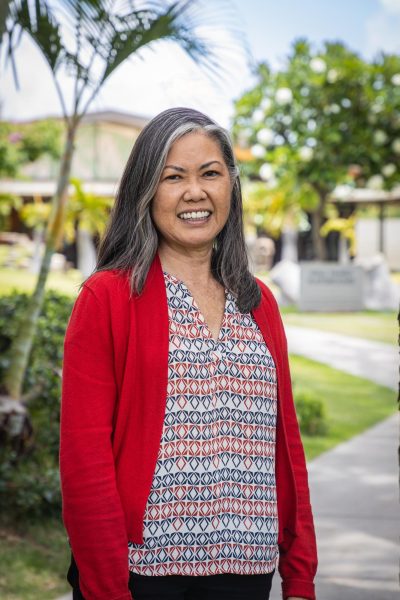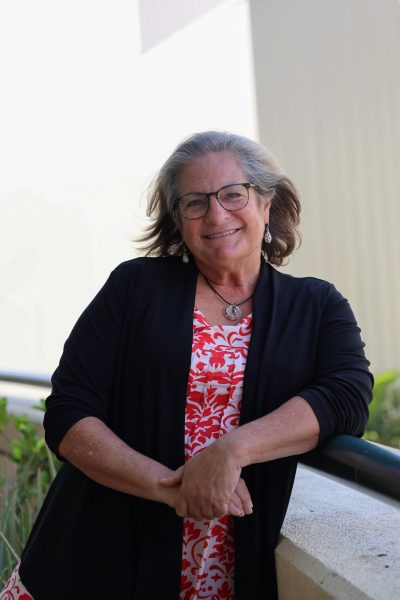A New Reflection Upon America

Ever since the Cold War era, the College Board’s Advanced Placement (AP) program has aimed to provide high school students with the opportunity to take collegiate-level courses. AP courses, ones that range from the sciences to the arts, are meant to give students an insight into future college studies and offer them the chance to earn college credit or early placement in advanced college courses. ‘Iolani School has and continues to have a very successful Advanced Placement program, offering a whopping 30 AP courses for students to choose from. According to the ‘Iolani School Class of 2023 Report to Colleges, 90% of the senior class is taking at least one AP Class. In the upcoming 2023-2024 school year, the number of AP courses is set to rise from 30 to 31 due to the introduction of AP African American Studies.
Formation and Implementation
Currently a pilot course, AP African American Studies seeks to initiate the meaningful discussion and the interdisciplinary study of African American experiences dating back to the time of African kingdoms. Students will have the opportunity to engage with literature, history, art and music that showcase Black and African American heritage and culture in the context of different time periods.
This upcoming course has been recognized for college credit by over 200 colleges and universities, according to the College Board. Its recognition stems from its rigorous development, having been refined by numerous African American Studies scholars in higher education for over a decade, such as Dr. Henry Louis Gates Jr. of the Harvard University Hutchins Center for African and African American Research. The College Board hopes that this course will serve as a springboard to higher college course enrollments in the field.
According to the Dean of Studies, Dr. Michael Lomuscio, ‘Iolani School is fortunate to have been chosen to be part of the course’s expanding pilot program in the 2023-2024 school year. “When [the College Board] launches an AP class, they understand that people are going to have [a variety] of opinions. I’m honored that [‘Iolani School gets] to be one of the voices that [gives feedback] for everybody,” says Dr. Lomuscio. ‘Iolani will be offering the course, among other select pilot schools, as a hybrid history-English year-long elective for interested juniors and seniors. Per the College Board’s plans, next year is the final year the course will be piloted before becoming an official course and exam in the 2024-2025 school year.
Course Structure
‘Iolani history teacher Mr. Russell Motter has taught a semester-long African American Studies course for over 20 years. He sees AP African American Studies, a year-long course, as an opportunity to expand upon the compromises that he had to make in teaching the broad area of study in just a semester. According to Mr. Motter, the course will begin with an extensive study of African kingdoms as centers for trade and Islamic learning, among other topics. He notes that this unit sets the precedent for the rest of the curriculum which aims to look past the borders of African American people and their heritage: “[AP African American Studies] really treats that whole diaspora of people of African ancestry throughout the Western Hemisphere and even into West Africa.” Mr. Motter adds that the study of people of African descent in other areas of the Western Hemisphere, notably the Caribbean and South America, allows for the corroboration of multiple viewpoints. Such comparisons set the context for a comprehensive analysis of African Americans.
The rest of the course, beyond the first unit, will parallel many of the events and time periods studied in an ordinary United States history class except that the study of Black people will be less compartmentalized. Mr. Motter explains that the course will go further than the “predictable places” in which Black people appear in American history. For example, students will spend time investigating the rise of the Jim Crow resistance prior to the decision in Plessy v. Ferguson which often gets dissipated by the study of the overwhelming spread of white supremacy during that same era.
Moving further into the twentieth century, students can expect an in-depth look into the Great Migration and the following movements that ensued, principally the Harlem Renaissance. The interdisciplinary nature of the course will come to light in this particular unit since students will have a chance to listen to and explore the revolutionary music that emerged from the Harlem Renaissance. Mr. Motter says the ability to academically engage with the effects of that time period “repositions African American people in our national narrative.”
In the study of African American authorship and leadership in the latter half of the twentieth century, historical details of African Americans typically neglected will be analyzed. Such topics include the contributions of women in the civil rights movement and the African American feminist response to societal turmoil in the 1960s and 1970s. These final big ideas of the course will eventually segway into a 1,200-1,500 word final research paper which will count as a part of the AP assessment. Mr. Motter is looking forward to a variety of research topics, saying, “Students are free to choose a topic that might be historical or even a contemporary issue, which [should be] an exciting choice for [them].”
Zahren York ’23 is particularly excited that students will get to delve deeper into African American philosophy as a larger theme in the course, especially in the context of the twentieth century. He says, “Being able to learn about African American philosophers and their impact on nationwide intellectual history is simply amazing to me.”
Beyond the Classroom
Besides the academic aspects of the course, AP African American Studies will also bring a new face to diversity. “There’s a lot of research that shows that diversity is a key ingredient to creativity,” said Dr. Lomuscio. He believes that experiences in such courses are analogous to other higher education opportunities such as studying abroad—both leave students with the simultaneous effects of an expanded mindset and a world closer to them.
Although many elements of the course have been well developed and continue to be revised in accordance with initial pilot feedback, AP African American Studies remains controversial. On Feb. 1, 2023, the first day of Black History Month, the College Board included a revised course and exam description that removed topics that were seemingly political in nature. Zahren, setting the political context aside, says “As time has progressed, people have been taking more initiative to address African American history, so the development of AP African-American Studies sincerely seems like one of these modern-day initiatives.”
Looking at national challenges to the course, particularly in the media, Dr. Lomuscio believes that political tensions arise from set “power structures and power dynamics.” He believes that opposition to the integration of the course nationwide originates from isolated viewpoints that do not thoroughly consider that the course has valuable, factually-true material. In a similar fashion, Mr. Motter believes that the removal of so-called “agenda-driven” topics undermines the historical accuracy and pertinence of the course.
Nevertheless, AP African American Studies is multi-faceted in that it serves both as a springboard for other history courses that highlight historically marginalized people and as a reflection of the American identity. Dr. Lomuscio comments, “It really makes sense to expand [AP course] offerings to include more stories from different groups.” Likewise, Mr. Motter sees the class as a way for us to rethink what it means to embrace an American identity: “Without knowing something about the struggle of African American people and how they have shaped the crucial questions that are at the heart of American history, you cannot answer the [fundamental] question about what it means to be an American.”

Hi everyone, I’m Devin! I am a senior and this is my fifth year as a member of the Imua Newsroom and I will be the Overall Editor-in-Chief this year....





